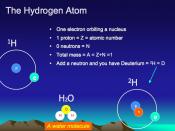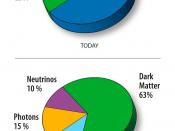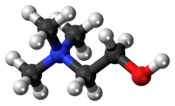Hydrogen is a tasteless, odourless, colourless gas and is one of the most important chemical elements. The hydrogen atom is simple and the smallest atom. Hydrogen consists of 1 proton, which has a positive charge, and 1 electron, which has a negative charge as well. Hydrogen has a chemical symbol H. Its atomic number is 1. Its atomic weight is 1.0079. The term hydrogen comes from two Greek words meaning water-former. Hydrogen gas and oxygen gas combine to form water.
Occurrence:
Hydrogen is chiefly combined with oxygen in form of water.
Hydrogen is the most abundant element in the universe. The sun and many other stars consist mostly of hydrogen. The great number of hydrogen atoms in the earth's crust makes it the third most abundant element on the earth, after oxygen and silicon. However, because of the small size of its atoms, hydrogen accounts for less than 1 per cent of the crust's weight, ranking ninth among the elements.
Most of hydrogen is combined with other chemical elements, as in water. But pockets of pure hydrogen gas can collect in underground mines and cause violent explosions.
Hydrogen occurs in almost all-organic compounds. Many of the compounds found in plant and animal tissues are organic. Compounds called hydrocarbons contain only hydrogen and carbon. Mixtures of various hydrocarbons make up petroleum and natural gas. Ammonia, most acids, many bases, and most plastics also contain hydrogen.
Physical Properties:
(1)It is the lightest of all the elements
(2)It is colourless and odourless gas
(3)Its boiling point is - 252.77 c
(4)Its melting point is - 259.2 c
(5)The density of hydrogen is 0,089 g/litre.
Chemical Properties:
(1)Hydrogen combines with oxygen to form water.
(2)Hydrogen combines with nitrogen to form ammonia (a catalyst is used in this reaction).
(3)It reacts with sulphur to...



Good stuff
well done. very
usefull
2 out of 2 people found this comment useful.